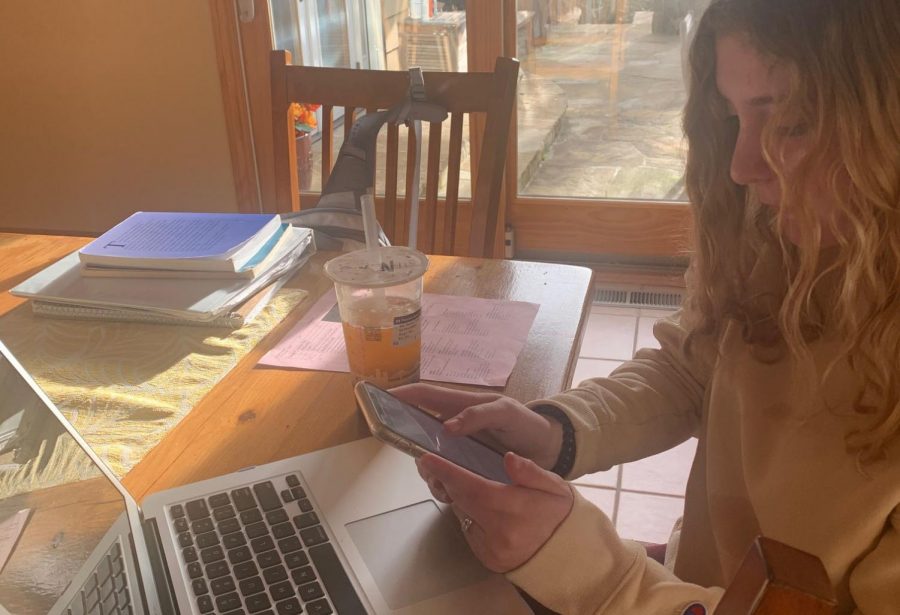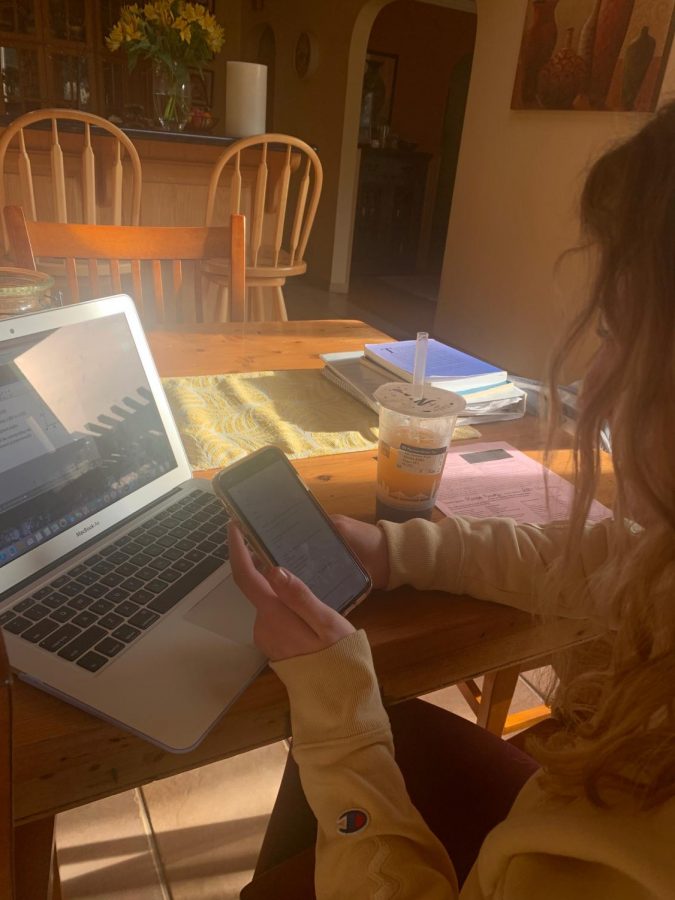Procrastination Increases Academic Stress
January 28, 2020
Procrastination is an epidemic among students. It leads to reading all 30 pages of your APUSH notes at midnight or starting your English novel the day before the essay is due. What ever it is that you have put off, take comfort in knowing that waiting until the last minute is an integral part of our academic culture.
Actually, don’t get too comfortable. Procrastination can cause you plenty of harm, especially on a campus also known for its competitive spirit.
Take the issue of sleep deprivation for those who procrastinate to the point that they are forced to cram through the night. 1 person may claim that she only slept for 5 hours. This inevitably leads to the 1-up from a peer who then sleeps only 4 hours. “I definitely think there’s a sort of competition in procrastination and activities,” said junior Emma Dillard.
According to junior Spencer Deutz, it is typical for students to put off the assignments that require the greatest amount of brainpower. “The workload can be overwhelming, and everyone finds it easier to put it off than to address it when they should,” said Deutz.
Deutz resorts to procrastination when she has less busy days after school because she “feels like [she has] a lot of time to do it,” and she can, therefore, afford to put it off.
Social media can be the biggest rabbit hole as students look for distractions from their academic responsibilities. Just 1 text notification is enough to set some back hours in their work.
“I feel like the phones contribute to the procrastination of homework. Apps like Tik Tok, people spend hours on,” said freshman Parker Reiner.
Seniors face a double whammy in the fall semester, as they balance completing college apps with the rest of their school work. Senior Jacob Ryerson said, “the amount of stuff you have to do [as a senior] is a lot.”
While some may think that the payoff for seniors comes in their 2nd semester, those who fall too far behind can suffer from persistent fatigue that lingers long after the college apps are finally submitted. “It’s easy to fall behind in writing supplements when you still have lots of homework from classes,” said Ryerson. “It just makes you really tired by 2nd semester.”
The pressure to load up on AP and Honors classes also contributes to the ever-rising mountain of responsibility for students, and thus, a greater tendency to feel overwhelmed. Such a sense of futility in the face of an unmanageable workload only compounds the problem.
AP Psychology teacher Steven Dyer has noticed that all his students, from freshman to seniors, tend to put off their work instead of completing it early. However, Dyer is sympathetic towards procrastinating students, because he “did as a student,” and he “[sometimes] still [does] because it’s human nature.”
Some procrastinators manage to skate by, earn their desired grades, and be accepted to their colleges of choice. Unfortunately, their pattern of behavior only sets them up for more struggles down the line.
According to AVeryWellMind.com, 80-90% of college students procrastinate habitually and approximately 20% of adults continue to procrastinate in their working lives.
While there may be 10 to 20% of Campolindo students developing good habits now, as the school is both rigorous and high-performing, I don’t have much hope for how the majority of our graduates will fair as they move on to college and beyond.
The bottom line is, procrastination results in reduced academic performance and greater levels of stress.
Solutions for avoiding procrastination include breaking up a project into smaller tasks and staying away from your phone.
Dyer has found that when he sets several intermediary deadlines for his projects, students are more likely to spread out their work instead of doing it all the night before the final due date. “Kids don’t know how to manage their time. People have a lot of things going on. I need a deadline to reinforce how important something is [to students],” said Dyer.


